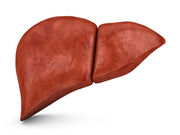Magnitude of association higher for intracerebral, subarachnoid hemorrhage versus ischemic stroke
TUESDAY, June 6, 2017 (HealthDay News) — Cirrhosis may raise older patients’ odds for a stroke, particularly hemorrhagic stroke, according to a study published online June 5 in JAMA Neurology.
Neal Parikh, M.D., of Weill Cornell Medicine and New York-Presbyterian Hospital in New York City, and colleagues tracked 2008 to 2014 data for 1,618,059 Medicare patients older than 66.
The researchers found that while 1.11 percent of people who did not have cirrhosis suffered a stroke during the average year, that number rose to 2.17 percent for patients with cirrhosis. The magnitude of association appeared to be higher for intracerebral hemorrhage and subarachnoid hemorrhage (hazard ratios, 1.9 and 2.4, respectively) than for ischemic stroke (hazard ratio, 1.3).
According to the authors, possible explanations for the association between cirrhosis and increased stroke risk include impaired clotting ability. Or, patients’ cardiovascular risk factors may be exacerbated by cirrhosis and the underlying causes of cirrhosis, such as alcohol abuse, hepatitis C infection, and metabolic disease, they said. Parikh’s team said further research is needed to help “yield opportunities for stroke risk reduction and prevention” in these types of patients.
Copyright © 2017 HealthDay. All rights reserved.








